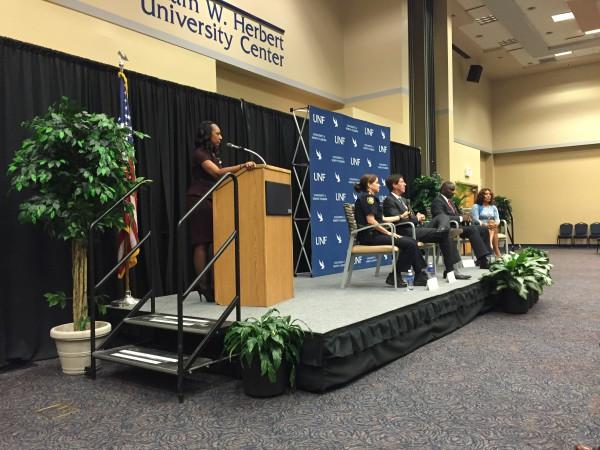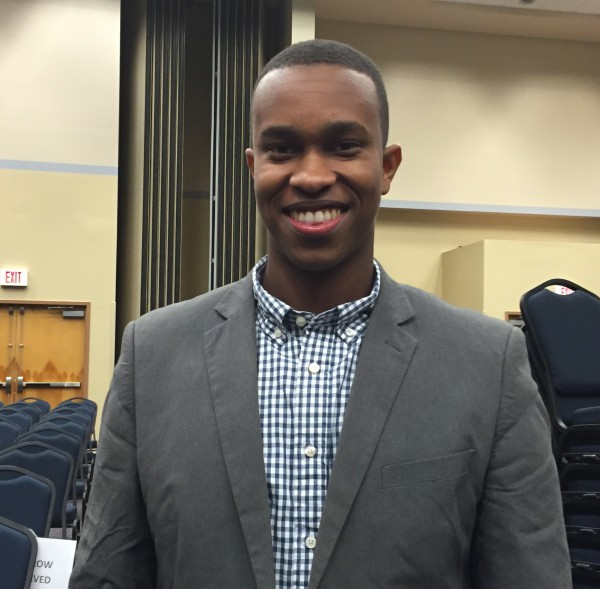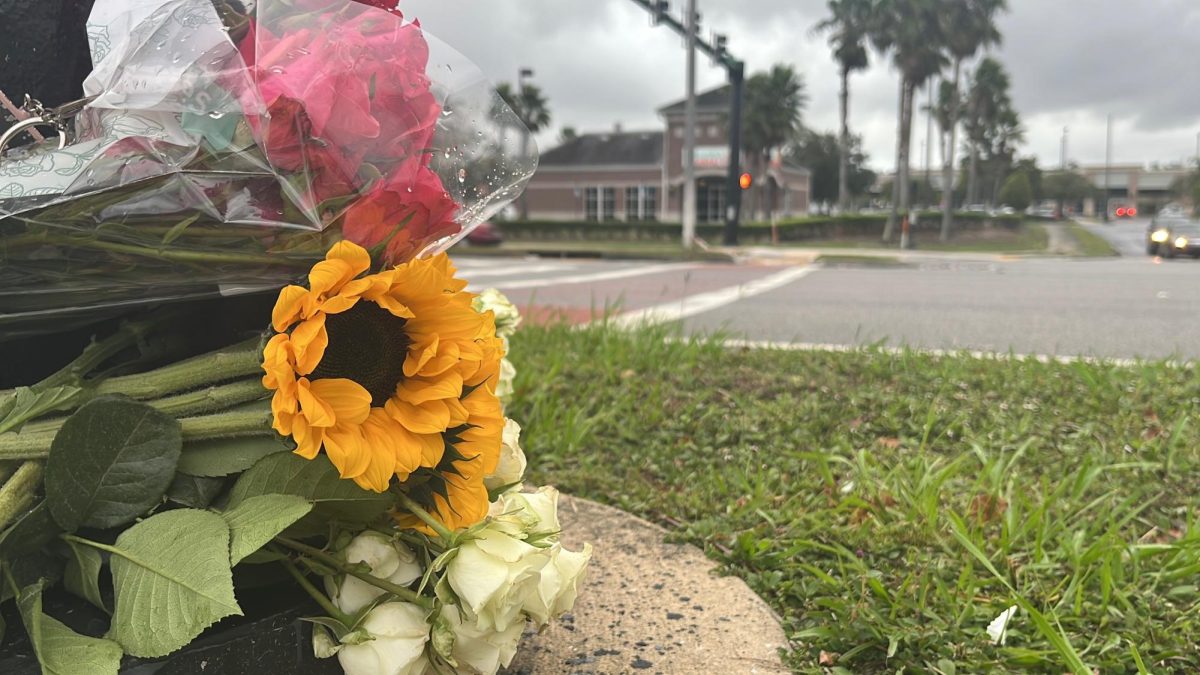
Photo by Jordan Perez
Students and local residents discussed the story of Jordan Davis, a teen who was shot and killed three years ago at a local Jacksonville gas station, at the 3 ½ Minutes, Ten Bullets screening on Tuesday night in the Adam W. Herbert University Center.
“This is a homecoming for this film,” said Ron Davis, the father of Jordan Davis, to a full ballroom. The documentary has been screened in international cities like London, and was screened at the White House earlier this year. Now it’s made its way to the university and its students.
The film documents the death of the teen and the murder trial court proceedings. Although the documentary told a tragic story, there were lighthearted moments sprinkled throughout the film, encouraging the audience to smile and laugh. There were also moments when the audience engaged in a booming applause, when the final verdict for Michael Dunn drew.
After the screening, tough topics surrounding race were discussed during the panel, with audience reactions ranging from supportive cheers to engaging discussion.
The panel was made up of Ron Davis and attorney Mark O’Mara, who represented George Zimmerman in the high-profile Trayvon Martin murder trial. Michelle Cook, director of professional standards at the Jacksonville Sheriff’s Office also joined the panel, alongside Chevara Orrin, chief creative catalyst at EQ3 Media.
Davis opened the discussion and said, “There’s a difference between Americans that wish to see color and other ones that say ‘I’m colorblind’. That’s one of the worst things you could say to anybody.”
Both Davis and Mark O’Mara took strong stances on violence against law enforcement. O’Mara said the current frustrations towards the police are dangerous.
The attorney noted that the danger that stems from citizens not trusting or relying on the system and not giving law enforcement the time they need to “recalibrate.”
Davis responded and said, “A good cop doesn’t let another cop do bad things.” This drew in a round of applause from the entire room. When an audience member asked about how the justice system could improve itself, Davis said, “The justice system will not be just if we keep getting people in there with bias.”
For the event’s attendees, the evening tapped into their own lives and perspectives deeply.

Dr. Jenny Stuber, associate professor in the sociology department, had seen the film once before Tuesday evening’s screening, and felt equally moved both times.
“Where would Jordan be today if he was alive?” Stuber said, “He should be on a college campus somewhere experiencing the benefits of learning from activities like this, not being the subject.”
Former Student Government President and political science major Shomari Gloster said the movie and panel discussion moved him in a positive way.
“There’s a central theme among African-American young men that it could be you, and it’s very true,” Gloster said.

The former SG president also talked about a time he felt the effects of racism when an officer decided to not pull over Gloster because he didn’t go to a historically black college.
“For an officer to tell me that the reason he’s not going to give me a ticket is because I go to a predominantly white institution, that just shows me that there’s still a problem,” Gloster said.
The “3 ½ Minutes, Ten Bullets” event created a safe space to discuss the touchy topic of race and discrimination. The story of Jordan Davis is one that continues to encourage conversations of race in hopes of fabricating understanding and tolerance.
—
For more information or news tips, or if you see an error in this story or have any compliments or concerns, contact news@unfspinnaker.com.











